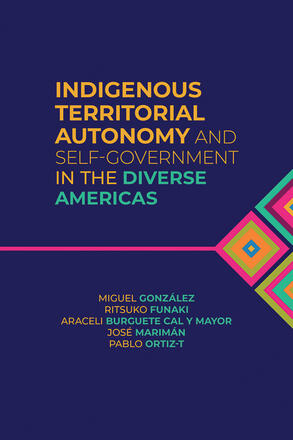
An essential work on autonomy and self-governance for scholars of Indigenous politics, Indigenous rights in the Americas, constitutional law, and multicultural citizenship regimes.
Description
Across the Americas, Indigenous and Afro-descendent peoples have demanded autonomy, self-determination, and self-governance. By exerting their collective rights, they have engaged with domestic and international standards on the rights of Indigenous Peoples, implemented full-fledged mechanisms for autonomous governance, and promoted political and constitutional reform aimed at expanding understandings of multicultural citizenship and the plurinational state. Yet these achievements come in conflict with national governments’ adoption of neoliberal economic and neo-extractive policies which advance their interests over those of Indigenous communities.
Available for the first time in English, Indigenous Territorial Autonomy and Self-Government in the Diverse Americas explores current and historical struggles for autonomy within ancestral territories, experiences of self-governance in operation, and presents an overview of achievements, challenges, and threats across three decades. Case studies across Bolivia, Chile, Nicaragua, Peru, Colombia, Mexico, Panama, Ecuador, and Canada provide a detailed discussion of autonomy and self-governance in development and in practice.
Paying special attention to the role of Indigenous peoples’ organizations and activism in pursuing sociopolitical transformation, securing rights, and confronting multiple dynamics of dispossession, this book engages with current debates on Indigenous politics, relationships with national governments and economies, and the multicultural and plurinational state. This book will spark critical reflection on political experience and further exploration of the possibilities of the self-determination of peoples through territorial autonomies.
Reviews
A significant contribution to contemporary discussions on Indigenous peoples and the state, for its critical and comprehensive view, and especially for the diversity of experiences that it documents that put at the center the strength of peoples to exercise their right to self-government in contexts of great diversity and dispossession.
- Maria Teresa Sierra, Revista Sobre Acesso à Justiça e Direitos Nas Américas